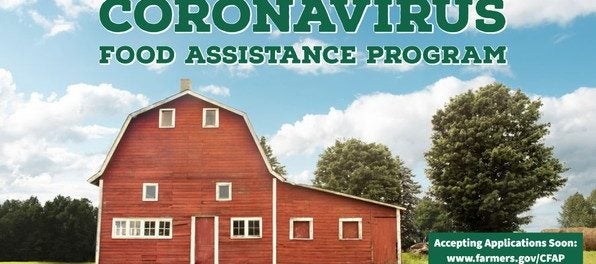Building Farm Resilience During COVID-19

Continuing to Build Farm Resilience During COVID-19 – From the Cornell Small Farms Program
The Cornell Small Farms Program continues to offer resources on building farm resilience during COVID-19. Their latest installment shares information on health and safety to take care of ourselves, our employees and our customers through this pandemic. CSF is regularly updating a COVID-19 resource page as information and resources become available. You can also find COVID-19 resource pages and lists from beginningfarmers.org by following the links at the bottom of the post.
The Cornell Small Farms Program was established in 2001 as a program of Cornell University’s College of Agriculture and Life Sciences (CALS) to increase research and extension for small farms. In the years since, the Cornell Small Farms Program has engaged in research and extension projects focused on small farm viability by working collaboratively with a network of CALS faculty and staff, Cornell Cooperative Extension (CCE) educators, and other small farm advocates throughout New York.
These partnerships have helped our program offer an increasingly dynamic set of programming to engage farmers of all enterprises and experience levels. Thousands of farmers participate in our online courses, in-person trainings, and other programming each year.
We commit to ensuring, to the greatest extent possible, that our time, energy, and financial resources are committed equitably to all people. We will continue to be actively engaged and involved in relationship building, collaboration, and support of efforts to build diverse, equitable and just food systems. Read more about this commitment in our Equity and Justice Statement.
- Find COVID-19 resources for farmers at https://www.beginningfarmers.org/covid-19-resources-for-farmers/
- Find more COVID-19 resources for farmers at https://www.beginningfarmers.org/covid-19-resources-for-farms-grants-and-more/
- Find more COVID-19 news and resources for farmers in the Farming Resources blog archive at https://www.beginningfarmers.org/farming-resources/
- Learn more about loans, grants, and other funding resources at https://www.beginningfarmers.org/funding-resources/
- Get more information about Farm Policy and Agricultural Politics at https://www.beginningfarmers.org/farm-policy-agricultural-politics/
- And as always, find tons of useful farming resources by visiting https://www.beginningfarmers.org/additional-farming-resources/







 Your Privacy Choices
Your Privacy Choices
Leave a comment